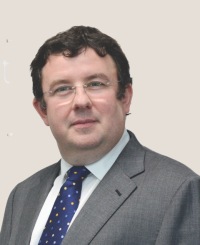News / Providers call for better dialogue over currency
 The Department of Health is consulting on the mechanism for objecting to the methodology used in determining the tariff. Currently, a new tariff cannot be adopted if 51% or more of commissioners or providers (by number) object or if providers that object have more than 51% of the share of supply of prescribed healthcare services.
The Department of Health is consulting on the mechanism for objecting to the methodology used in determining the tariff. Currently, a new tariff cannot be adopted if 51% or more of commissioners or providers (by number) object or if providers that object have more than 51% of the share of supply of prescribed healthcare services.
The consultation proposed the
removal of the share of supply objection and raising the thresholds on the remaining two tests from 51% to between 66% and 75%.
The initial proposed tariff for 2015/16 was not adopted after the threshold was met on the share of supply test. The consultation said objections were based on the efficiency factor and specialised services prices, rather than the methodology.
The Department said it must prevent future disruption and the share of supply test gave a disproportionate say to a small number of large providers. Large providers would have a say as part of the wider provider community and Monitor would prepare an impact assessment on the tariff proposals, which would include the differential impact on large providers.
Mr Hopson said: ‘The lessons from the use of the objection mechanism is that the dialogue around the tariff needs to be better, richer and deeper. We are concerned these proposals by themselves point in the opposite direction. Raising the objection threshold and abolishing the share of supply trigger make it more difficult for providers to make their voice heard.
‘We are concerned these proposals make it easier for the NHS to end up with an undeliverable tariff, at the cost of high quality patient care.’
Related content
The Institute’s annual costing conference provides the NHS with the latest developments and guidance in NHS costing.
The value masterclass shares examples of organisations and systems that have pursued a value-driven approach and the results they have achieved.